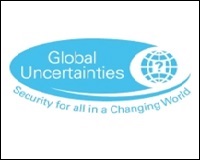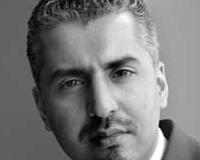The end of the secular era
by - 30th October 2013
 THE RELIGION gravy-train is beginning to roll. Vast resources are being made available to study religion from a myriad angles, most notably security. Islamic extremism – 9/11, 7/7 and the nightmare fall-out of America’s hapless foreign adventures – sparked a thousand religion research projects, not least being the £340million Global Uncertainties Programme.
THE RELIGION gravy-train is beginning to roll. Vast resources are being made available to study religion from a myriad angles, most notably security. Islamic extremism – 9/11, 7/7 and the nightmare fall-out of America’s hapless foreign adventures – sparked a thousand religion research projects, not least being the £340million Global Uncertainties Programme.
Religion is trendy. (Not Christianity of course. Not church. Perish the thought.) But any shaven-headed sociologist with an ear-ring, any hijabbed and articulate ‘outreach worker’, any multi-faith professional in fact will look oddly at you if you mention the traditional reticence of the British about faith. Good grief. Even the leader of the English Defence League is ‘taking religious instruction’ from the sheikh - Usama Hasan - who runs Quilliam Foundation.
We are at the end of the secularist era. The New Religious Era is upon us.
This is now so obvious that even to say so in a meeting of religion academics is to invite waspish rebuke to the effect of ‘What planet have you been on all your life?’ When in fact, it was not only not obvious even ten years ago, but downright subversive to say so.
In 2004 I wrote the following for a learned journal after a decade of wrestling with these things for my doctorate:
‘The time may not be far hence, post-September 11, when what is known as secularization will seem an absurdly inadequate and antiquated notion. However, the overt religiousness of immigrants was still so strange a phenomenon to ethnic Europeans in 1998 that a Council of Europe Seminar in Strasbourg on 24 – 26 November produced a resolution that the term ‘secular’ should be re-examined in light of immigration. The document stated that,
The use of the term ‘secular’, referring to the relationship between the State and religion should be re-examined and clarified on a pan-European level, with a view to reaching a common understanding. The presence of minority religious communities and the resulting religious pluralism makes it necessary to device [sic] new State policies in this field. A further Seminar would be an excellent occasion to define the element of such policies in cooperation with representatives of the religious communities concerned (EV 1998:4). (Political Theology Journal Volume 5:3.)
Lapido Media, funded by private donation, was one small contribution to the new religious discourse, encouraging colleagues in the media to break the professional taboos on faith. Such taboos included the absolute bar on acknowledging that religion had anything to do with the way things worked or not - with ‘the story’ in other words. And the refusal to use sources with an overt faith. This was 'bias'. You could quote Medicins sans Frontieres, parachuted into a crisis the week before, but not the indigenous churchmen or women grimly holding the line between chaos and hope year in year out.
It’s only the BBC that doesn’t seem to get it still, indicating the strength of the ideological grip that has kept it so at odds with British culture over the years. The good old Sunday Programme on Radio 4 keeps using the cliché otherwise heard only in the pulpits of Anglican clergy: ‘. . . our increasingly secular society …’
It just ain’t so. Politically, and in terms of governance, we are de-secularizing, and have been since 1988 when Thatcher set up the Inner City Task Forces to get serious about integrating the religious migrants stranded there in great deprivation and mutual incomprehension.
However, we are not desecularizing along the path we secularized. We are de-secularizing along an Islamic path – a changing Islam of course, but Islam nonetheless.
Two comments we might read as signs of these times:
 Majid Nawaz, Pakistani former Hizb-ut-Tahrir recruiting sergeant who did time in a Cairo gaol accused of seeking to overthrow the government, who now chairs the world-famous Quilliam Foundation, is to give ‘training in democracy’ to English working-class lads from Luton – as he told a press conference in Bloomsbury two weeks ago.
Majid Nawaz, Pakistani former Hizb-ut-Tahrir recruiting sergeant who did time in a Cairo gaol accused of seeking to overthrow the government, who now chairs the world-famous Quilliam Foundation, is to give ‘training in democracy’ to English working-class lads from Luton – as he told a press conference in Bloomsbury two weeks ago.
And a former copper, Nick Parke who handled ‘domestic terrorism’ before taking on the post of Director of INFORM, the think tank on new religious movements (there are currently 1,000 in the UK apparently), tells me ‘secularization is just indifference’.
An intern of mine once argued ferociously with me that ‘atheism’ – for which secularism was the deliberate euphemism of the Marxist left – is the default position of human thought. That’s what he’d been taught at school and on his philosophy course at Reading University. When in fact, even a policeman knows we are spiritual at core, and to ignore it is to reap the whirlwind.
- Log in to post comments
